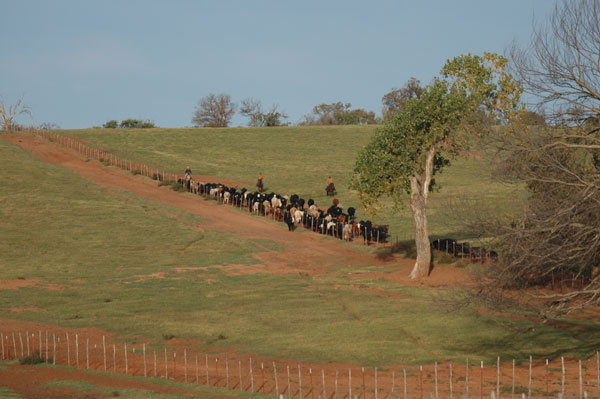Fighting for the freedom to farm
December 7, 2016

As a writer, I’m quite aware of my First Amendment rights of freedom of speech. Every Monday through Thursday, I can sit down to pen a blog post about what’s on my mind, without fear of persecution for my beliefs.
On the same token, readers have the same right to vehemently disagree with what I write, and the dialogue is welcome, encouraged and appreciated on the blog.
Back-and-forth debates are what make America great, and we've certainly seen this play out recently, with constant discussions about political candidates, as well as protesters lining the streets for various movements such as Black Lives Matter and No Dakota Access Pipeline, just to name a few.
For farmers and ranchers, the freedom to operate is equally important. In the last eight years, agriculturalists have faced plenty of challenges in that arena as an extremely regulatory administration has slapped plenty of burdensome and unnecessary rules and restrictions on our abilities to grow food in this country.
Combine those regulatory burdens with plenty of criticisms from our consumers, and it can feel like an overwhelming task to find common ground, explain our production methods and reason with those who are extremely anti-agriculture in views and sentiment.
I recently read a blog post from BEEF’s sister publication, National Hog Farmer, that addresses this topic. Written by blogger Cheryl Day, the post describes how American agriculture helped shape this nation and how it seems protesters are hell-bent on destroying the very foundation of what makes this country so amazing.
READ: When did protesting agriculture become a professional sport?
Day writes, “American agriculture built this nation. In the most primitive form, living off the land is the only way to survive. Teach Americans to farm and they will feed the world. And that is exactly what happened as the United States emerged as a powerful nation. Many U.S. presidents have credited agriculture for being the noblest profession and the backbone of the country.
“Over the years, as many Americans traded the rough life and hard work of the farm for a perceived easier life, the hands that feed the nation shrunk. At the same time, so did the agriculture knowledge gained from getting your hands dirty and the appreciation for those still farming. Sadly, it seems the fewer who farm, the louder the opposition against this noblest profession has become.”
In the blog, Day asks when protesting agriculture became a sport for so many. She cites the many protesters who fight against hog barns being built in local communities.
She urges producers to get involved in the discussions and fight against the misconceptions being spouted at these protests.
She writes, “It is important that farmers and ranchers are not worn down from the professional protesting regime but continue farming courageously and diligently. We need to line up and support fellow farmers, exposing the real protesting agenda.”
We all have the right to free speech. We must exercise that right by speaking out and fighting for our right to farm. We are a global super power, in part because of our abundance of safe and affordable food. We must work to keep American agriculture as strong today as it was in our nation’s infancy.
The opinions of Amanda Radke are not necessarily those of beefmagazine.com or Penton Agriculture.
You May Also Like



